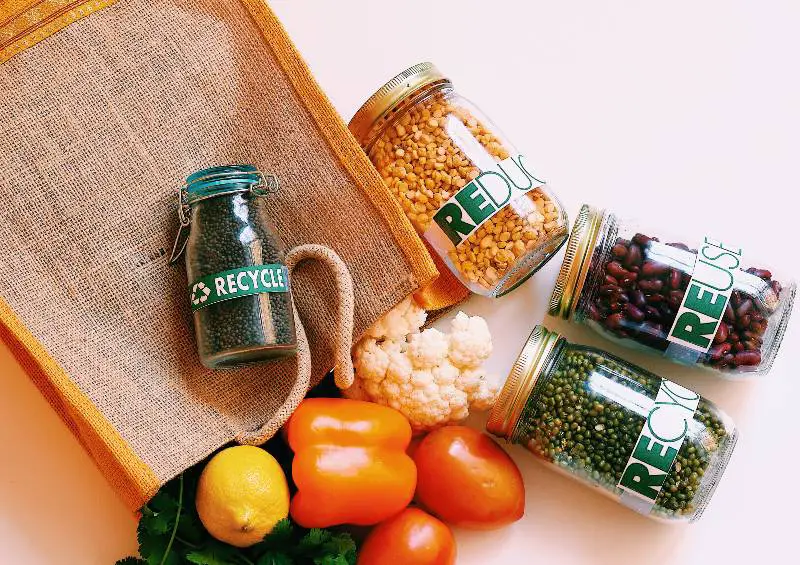Sustainable Living in Thailand: Tips and Tricks
Hey there! Sustainability is defined as the ability to meet the needs of the present without compromising the ability of future generations to meet their own needs. It’s all about balance – making sure that we don’t use up resources faster than they can be replenished. That’s why sustainability matters: without it, we risk running out of resources and damaging the planet beyond repair.
Now, when it comes to Thailand, the country is facing a ton of environmental challenges. From pollution to deforestation, there’s a lot of work to be done to protect the beautiful natural resources of this country.
That’s why living sustainably in Thailand is so important – we need to preserve what we have and make sure it’s there for future generations to enjoy. Over the course of this blog, we’ll explore different ways you can live sustainably in Thailand, from eco-tourism to reducing your own plastic waste and use. Let’s get started!
In November 2022, Thailand presented its revised and more ambitious national contribution to reducing greenhouse gas emissions by 30-40% from the projected baseline level before 2030.
Key Takeaways
- Achieving sustainability necessitates maintaining equilibrium between our current needs and those of the generations to come.
- The environment in Thailand is under siege, making sustainable living more essential than ever.
- Thailand has presented a plan to reduce greenhouse gas emissions by 30-40% before 2030.
Food and Agriculture
Importance of locally sourced foods
Have you ever thought about where your food comes from? When you choose to eat locally sourced foods in Thailand, you’re making a big impact on sustainability. Not only are you supporting the local economy, but you’re also encouraging sustainable agriculture. Plus, you can rest easy knowing that the food you’re eating has passed some of the highest safety standards in the world. And let’s not forget about the amazing taste of locally sourced foods! From fresh produce to delicious dairy products, Thailand has an abundance of locally sourced foods that are sure to satisfy your taste buds
Traditional Thai food and sustainable farming practices
When it comes to Thai food, authenticity is the name of the game. Traditional Thai dishes rely on fresh, locally-sourced ingredients, and sustainable farming practices have helped make this possible. With a focus on five key farming systems, small-scale farms in Thailand are able to maintain their livelihoods while contributing to a healthier environment. From rice paddies to fruit orchards, these farming practices prioritize long-term preservation over short-term profits. So the next time you savor a fragrant bowl of pad Thai or a spicy green curry, you can enjoy it with the knowledge that it was made with care – for both the people who produced it, and the planet we all share.
Organic farming in Thailand
Organic farming in Thailand has gained popularity in recent years as consumers are becoming more health-conscious and environmentally aware. Organic agriculture involves the use of natural inputs such as compost, manure, and other organic matter to maintain soil fertility and promote plant growth while avoiding the use of synthetic fertilizers and pesticides.
In Thailand, organic farming is regulated by the Ministry of Agriculture and Cooperatives, which has established guidelines and standards for organic certification. Farmers and companies must follow strict guidelines in order to receive organic certification, including the use of organic inputs, no use of genetically modified organisms (GMOs), and adherence to specific environmental and social standards.
Thailand’s agricultural sector is the foundation of its economy and serves as an essential source of income for many people. On a global scale, this Southeast Asian nation stands out in terms of agro-exports thanks to its favorable environmental conditions. In fact, it ranks amongst the countries in the top ten exporters across the world.
Organic agriculture is not a new strategy. It was practiced since the 1980s. In 1989, the Alternative Agriculture Network (AAN) was founded as a national network by farmers and their local communities and non-government organizations (NGOs) to drive sustainable agriculture including organic agriculture, and to share the knowledge and experiences with grassroots NGOs and farmer leaders. In 1992, a conference concerning organic agriculture was made as a part of the development of the sustainable agriculture movement
Plant-based diets and reducing meat consumption
More and more people in Thailand are turning to plant-based diets as a way to reduce their meat consumption. A survey showed that a majority of people are making conscious choices to incorporate more fruits and vegetables into their diets, with over half of respondents looking to decrease their meat intake. Interestingly, a significant portion of those surveyed expressed interest in going vegetarian or becoming fruitarians. It seems that the message about the benefits of plant-based diets is spreading in Thailand, and people are taking notice of the positive impact it can have on their health and the environment.
Read on here to learn more about the food scene in Thailand! From the bustling streets of Bangkok to the tranquil beaches in Phuket, Thailand offers plenty of diversity when it comes to cuisine. From fiery street food stalls and critically acclaimed restaurants, you can find something for everyone. Whether you’re a fan of spicy curries or fresh seafood dishes, there is no shortage of flavors in this country!
Transportation
Alternative modes of transportation
If you want to live in an eco-responsible way while in Thailand, look beyond cars and motorbikes for your mode of transportation. Instead, try biking or walking about: not only are these alternatives kinder to the environment, but they also provide a unique opportunity for immersing yourself in Thai culture and its surroundings.
Capitalize on the warm Thai weather by taking a bike ride or going for a pleasant stroll – seeing, hearing, and feeling all that this vibrant city has to offer. Enjoy being outdoors while also doing something good for the environment!
Public transportation in Thailand
Using public transportation is a great way to live sustainably and reduce your carbon footprint. In Thailand, there are numerous options available such as buses, trains, and the popular tuk-tuks. Buses are the most cost-effective, and the routes are easily accessible throughout the country. Trains are perfect for long-distance journeys, and they offer a comfortable and affordable alternative to flying.
Tuk-tuks are a more environmentally friendly alternative to taxis and offer a unique experience in getting around the city. By choosing public transportation, you can help reduce traffic congestion and improve air quality, making a positive impact on the environment.
Electric vehicles in Thailand
Thailand is on the brink of entering a new era with the arrival of commercial electric vehicles in its market. The government has already taken steps to ensure that this transition is smooth, having set out plans to build 690 charging stations and have more than one million EVs running by 2036.
As Thailand has set extremely bold targets, it’s evident that they are committed to advancing eco-friendly transportation. It is inspiring to see all the progress being made!
Waste Reduction
Proper waste disposal and recycling
Living sustainably in Thailand involves reducing waste and properly disposing of it through recycling. Currently, Thailand recycles roughly 49 percent of its solid waste, but the government and private sector have ambitious plans to increase that number to 75 percent by 2021. This includes investing over 177 billion baht (US$5.1 billion) in waste management technology and spreading awareness among the public about proper waste disposal.
Composting in Thailand
In fact, nearly 50% of all waste material from households and tourist-directed businesses in Thailand is organic. Imagine the positive impact if that material was diverted from traditional waste management systems! By composting your kitchen and garden food waste, you can not only prevent it from ending up in a landfill but also create nutrient-rich food for your garden. And with Thailand’s tropical climate, composting is even easier and cost-effective.
Zero-waste lifestyle in Thailand
Experience the majestic beauty and extraordinary culture of Thailand – from its sublime beaches to aged temples, punctuated by bustling night markets.
Although it is a popular tourist spot, Thailand’s natural beauty is being threatened by waste and pollution. This has inspired many of its citizens to embrace an eco-friendly lifestyle by attempting to reduce the amount of trash they produce through creative reuse and recycling initiatives. With successful implementation, this zero-waste approach strives towards preserving their homeland for generations to come.
By carrying their own reusable bags and containers to the grocery store, composting food scraps, or using natural cleaning products, eco-friendly individuals and local businesses are making a significant difference in their environment. Furthermore, they’re setting an example for others to join them on this journey of sustainability.
Energy
Renewable energy sources in Thailand
Currently, 14.9% of Thailand’s power generation comes from renewables, including biomass, hydropower, solar, and wind. Of these, solar has the greatest potential for further growth and can help meet the increasing demand for electricity in the country. By diversifying our energy sources and relying less on fossil fuels, we can mitigate the risks associated with fluctuating energy prices and contribute to a healthier, more sustainable future for Thailand.
Energy conservation tips for households
For the benefit of our environment and future generations, living sustainably is an undeniable necessity. If you’re a Thailand expat or resident who wishes to make a positive contribution, there are several energy-saving tips that can be applied in your household. A straightforward way to minimize energy consumption is unplugging all electronics when not in use.
Over time, even the tiniest electronic devices can consume a noteworthy amount of energy when simply plugged in and not turned on. This simple habit can have tremendous long-term effects if we make it part of our daily routine.
Also, an ideal way to save money and assist the environment is by transitioning to high-efficiency appliances and lightbulbs. Not only will you benefit from a lower electricity bill, but you’ll also be doing your part in preserving our planet.
Ultimately, make sure to cultivate good habits within your home that will aid in the sustainability of Earth. This can include switching off lights when leaving a room, taking shorter showers, and air-drying clothes instead of using an electric dryer. All little steps count towards a brighter future for our environment – so let’s do what we can!
Green buildings in Thailand
When it comes to living sustainably in Thailand, one of the major developments we can see is the rise of green buildings. It’s amazing to think that the first certified green building in Bangkok was only inaugurated in 2007 – that’s not even fifteen years ago! But since then, the number of certified green buildings in Thailand has grown at an impressive rate, almost doubling each year. Today, Thailand boasts 22 LEED and TREES-certified green buildings, and this number is likely to keep increasing as more and more people across the country recognize the importance of sustainable living.
Eco-Tourism
Sustainable tourism practices in Thailand
If you’re looking to live sustainably in Thailand, you’ll be happy to know that eco-tourism is on the rise there. With a focus on sustainable tourism practices, the country is becoming a hub for travelers who want to experience the beauty of Thailand without leaving a negative impact on the environment. In recent years, green buildings have also been popping up all over Thailand, making sure that the country’s infrastructure is as eco-friendly as possible.
And with the recent ban on single-use plastics in national parks, it’s clear that Thailand is taking important steps to preserve its natural wonders. So whether you’re a local or planning a trip to the Land of Smiles, you can rest assured that you’re contributing to a more sustainable future.
Ecotourism destinations in Thailand
Are you hoping to take a sustainable vacation in Thailand? If that’s the case, ecotourism should be at the top of your list! The country is home to countless lush nature reserves and eco-friendly resorts where visitors can relax while also giving back. Enjoy an unparalleled experience as you explore some of Thailand’s most stunning landscapes while also helping preserve this beautiful destination for generations to come.
Surrounded by lush jungles and stunning shorelines, Thailand is the perfect destination for anyone seeking to see local culture and bask in its natural beauty while honoring sustainability. From organic farming courses and permaculture workshops to beach explorations and jungle excursions, there’s a plethora of activities that will leave you feeling content with your minimal environmental impact.
When it comes to sustainable living, Thailand is overflowing with options–from yoga and meditation getaways for the content-seekers to exhilarating excursions for thrill-seekers.
Try visiting these places to get the most out of your trip!
Responsible travel tips in Thailand
Are you dreaming of a sustainable excursion to Thailand? If so, there are some simple steps you can take in order to reduce your environmental footprint while visiting.
Make an effort to cut out single-use plastic bags, straws, and utensils from your life. It’s better for the environment if you bring reusable alternatives or ask for them when dining at a restaurant. Moreover, conserve water by taking shorter showers and being mindful of energy consumption: switch off lights and air conditioning when leaving your room.
Living Sustainably in Thailand FAQs
How can I reduce waste in Thailand?
Give your contribution to reducing waste by following some easy steps – buy products with more sustainable packaging, use reusable bags and containers when shopping, say no to single-use plastics whenever you can, recycle, and start composting food scraps. Doing so will help protect our planet for future generations.
What are some renewable energy sources in Thailand?
Thailand is actively fostering the growth of renewable energy sources such as solar, wind, small and large hydropower plants, biomass and biogas power generation systems, geothermal technologies, and biofuel production. Also, the reclamation of municipal solid waste (MSW) provides an additional source for clean energy development in the country.
What are some eco-tourism destinations in Thailand?
Khao Yai National Park is the GOAT of Thailand’s parks and boasts an abundance of wildlife such as elephants, tigers, and gibbons. It’s a great place to get outdoors with hiking trails that take you through lush jungles and up peaks for stunning views. Birdwatching enthusiasts will also appreciate its richness in avian life while campers can set up base within this natural wonderland under the stars.
How can I practice sustainable living in Thailand on a budget?
Public transit is plentiful and pocket-friendly in Thailand, By opting for buses, trains, or even the BTS/MRT Skytrain as your means of transport you can reduce carbon emissions while also saving money.
How can I get involved in sustainable initiatives in Thailand?
There are several non-profit organizations in Thailand that are dedicated to promoting environmental conservation efforts and sustainability. If you’re looking for an opportunity to contribute, reach out to these charities and ask how you can become a volunteer today.
Conclusion
Creating a more sustainable lifestyle in Thailand is one of the most rewarding and beneficial ways an individual can positively contribute to our planet.
We can all strive to make a positive impact on our environment in various ways, such as using fewer resources like water and electricity, seeking out alternative materials that are environmentally friendly, or learning more about the ecological dilemmas facing us here at home. Each of these steps has the potential to create lasting change.
Yet, understanding sustainability is only the beginning of doing our part to help protect our planet.
To live more sustainably, we must educate ourselves on how others are doing the same; listen to firsthand stories from those who have changed their lifestyles drastically out of a commitment to reducing their carbon footprint; and support initiatives that work hard for a cleaner Thailand.
Making small changes today will lead to collective change tomorrow. That’s why you should check out our newsletter which offers up-to-date information on sustainable living in Thailand and resources that can help you take the necessary steps toward becoming truly eco-friendly.
Subscribe today and become part of the movement for a more sustainable future – in Thailand and beyond!






